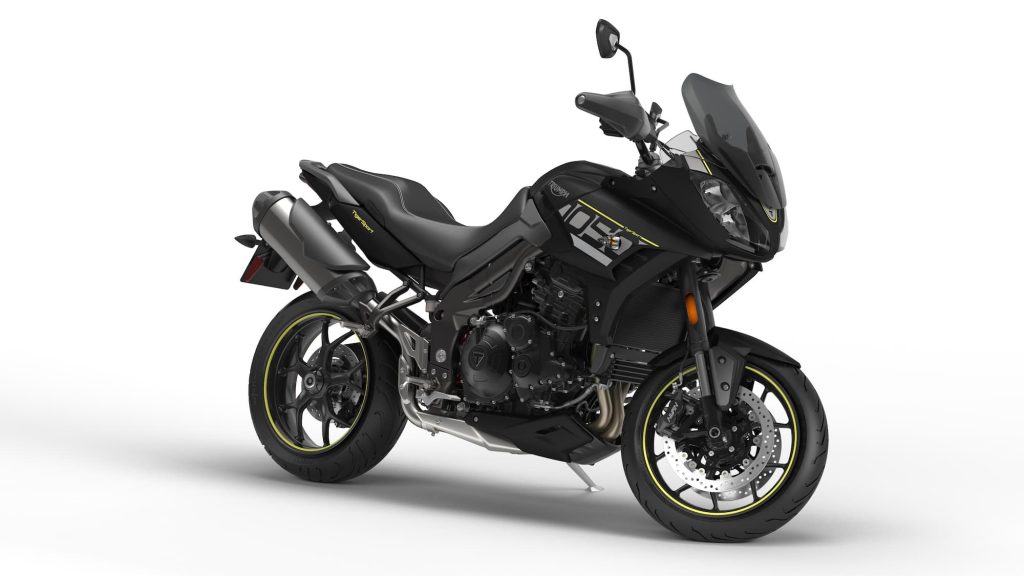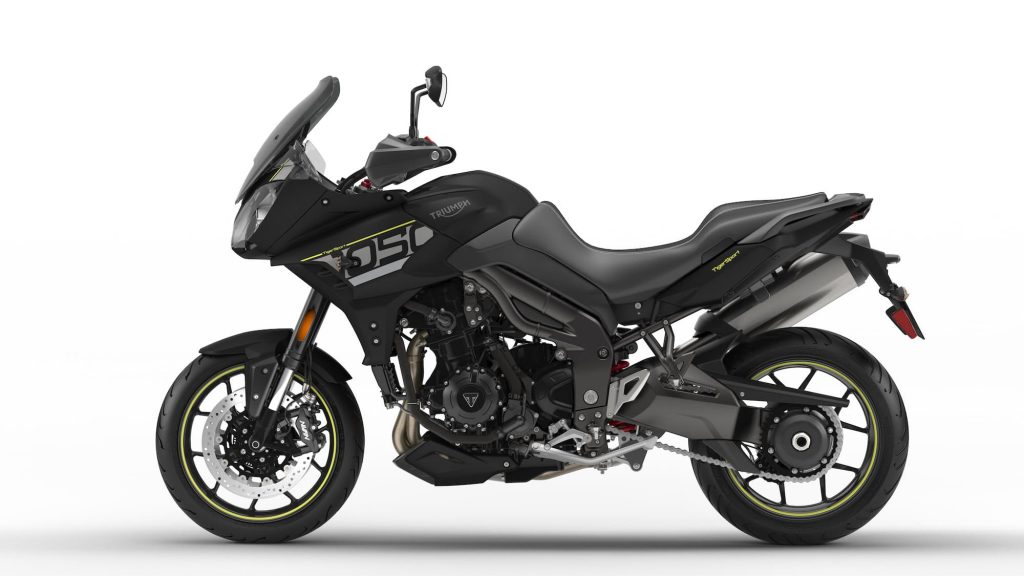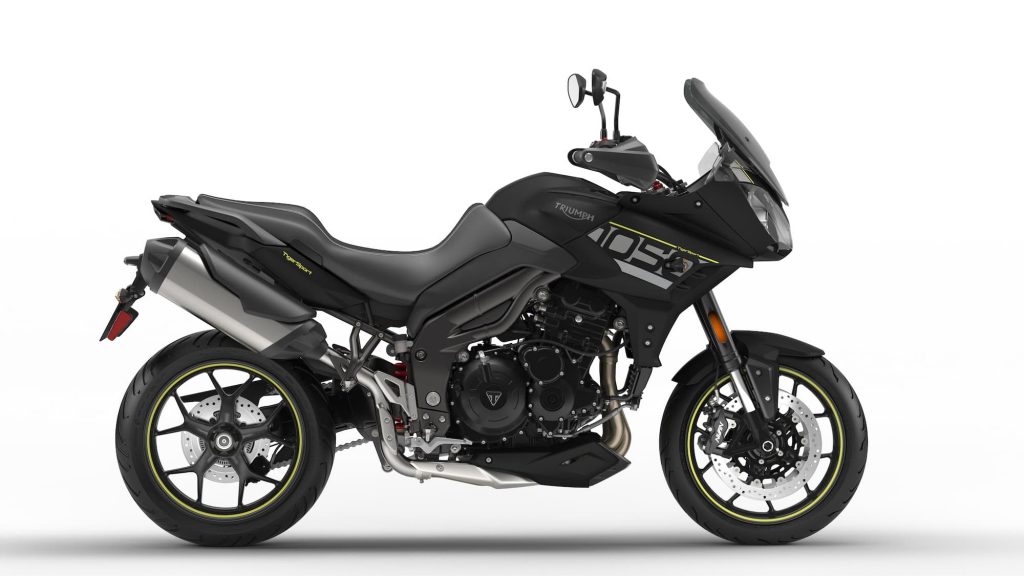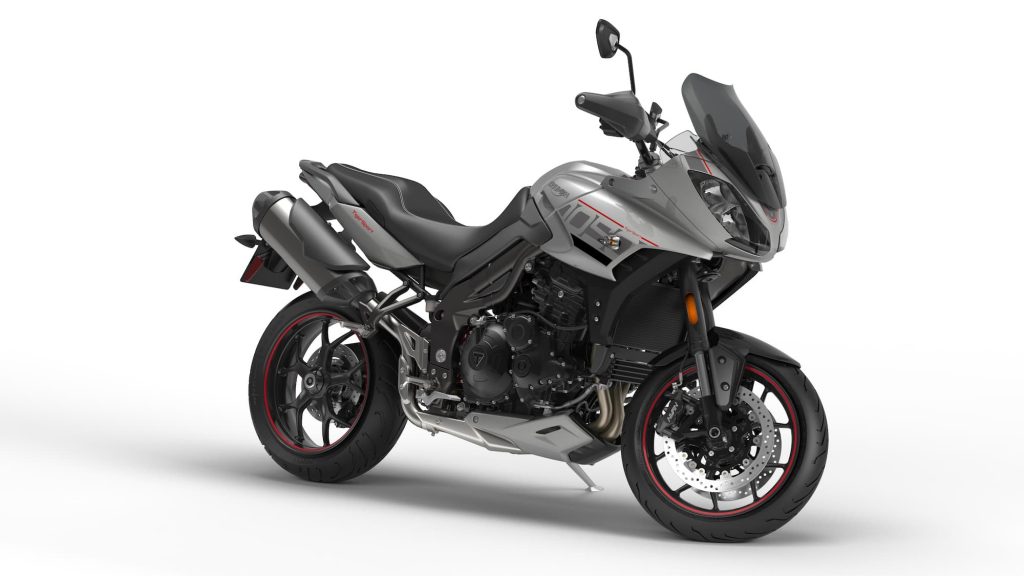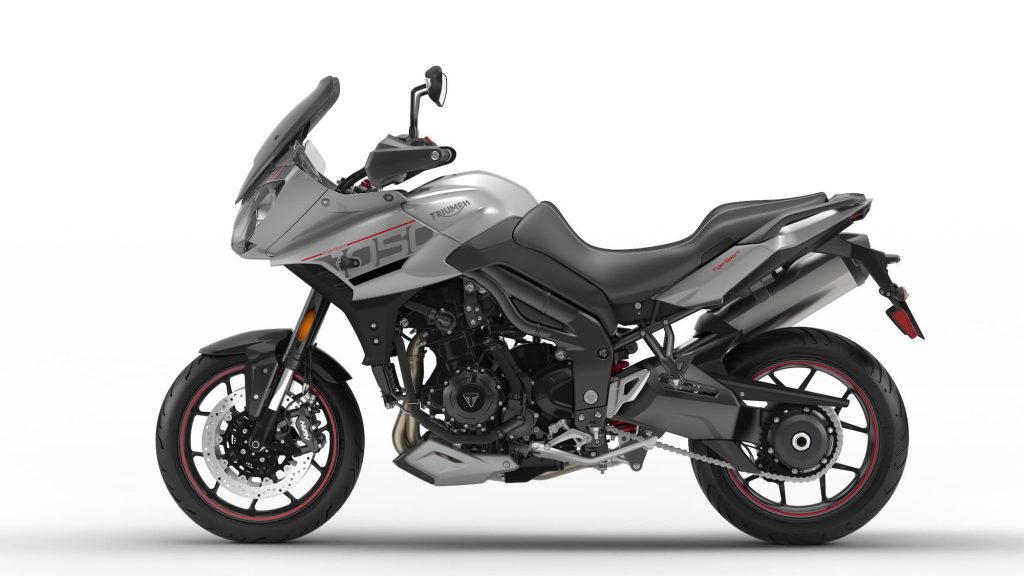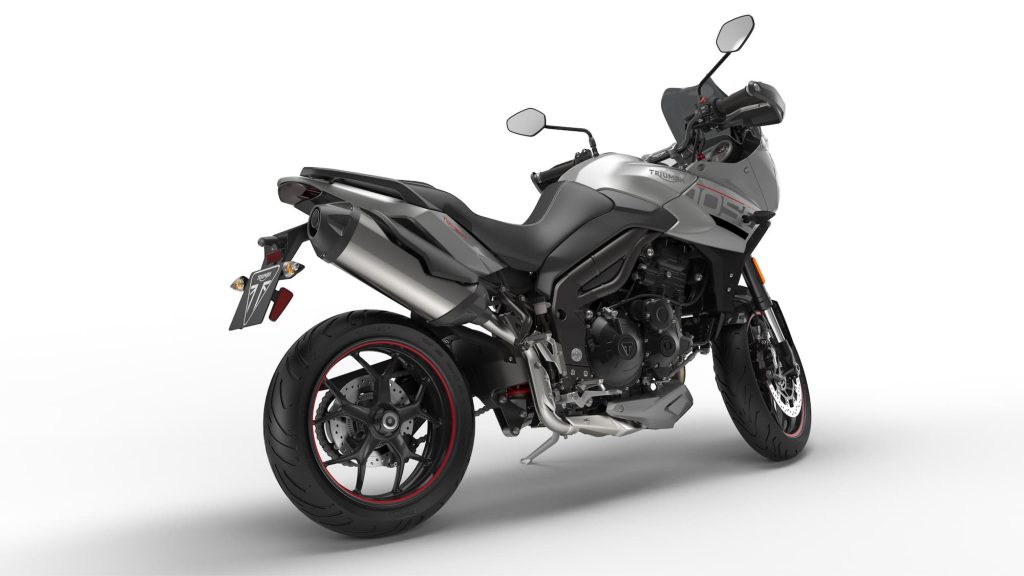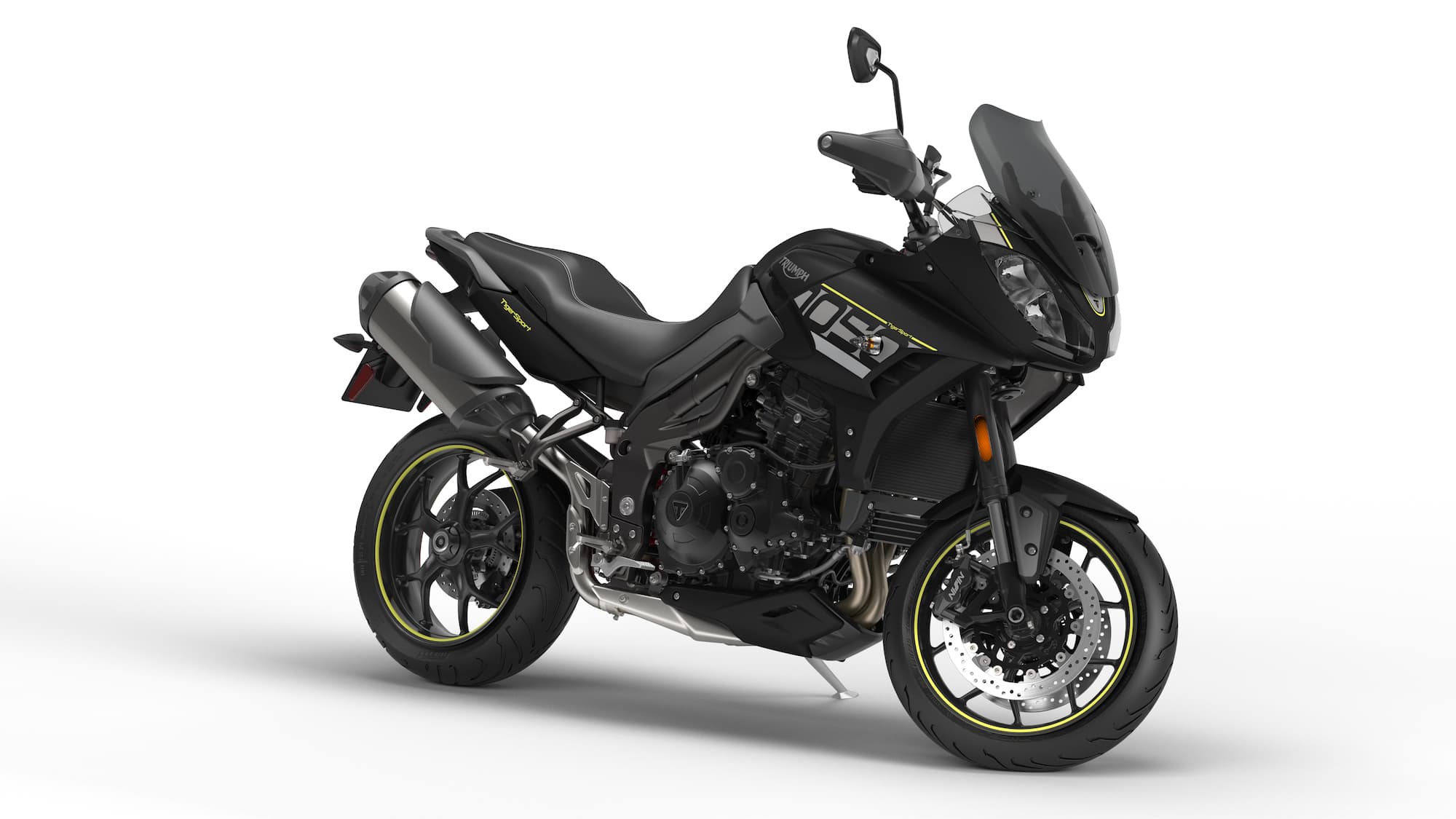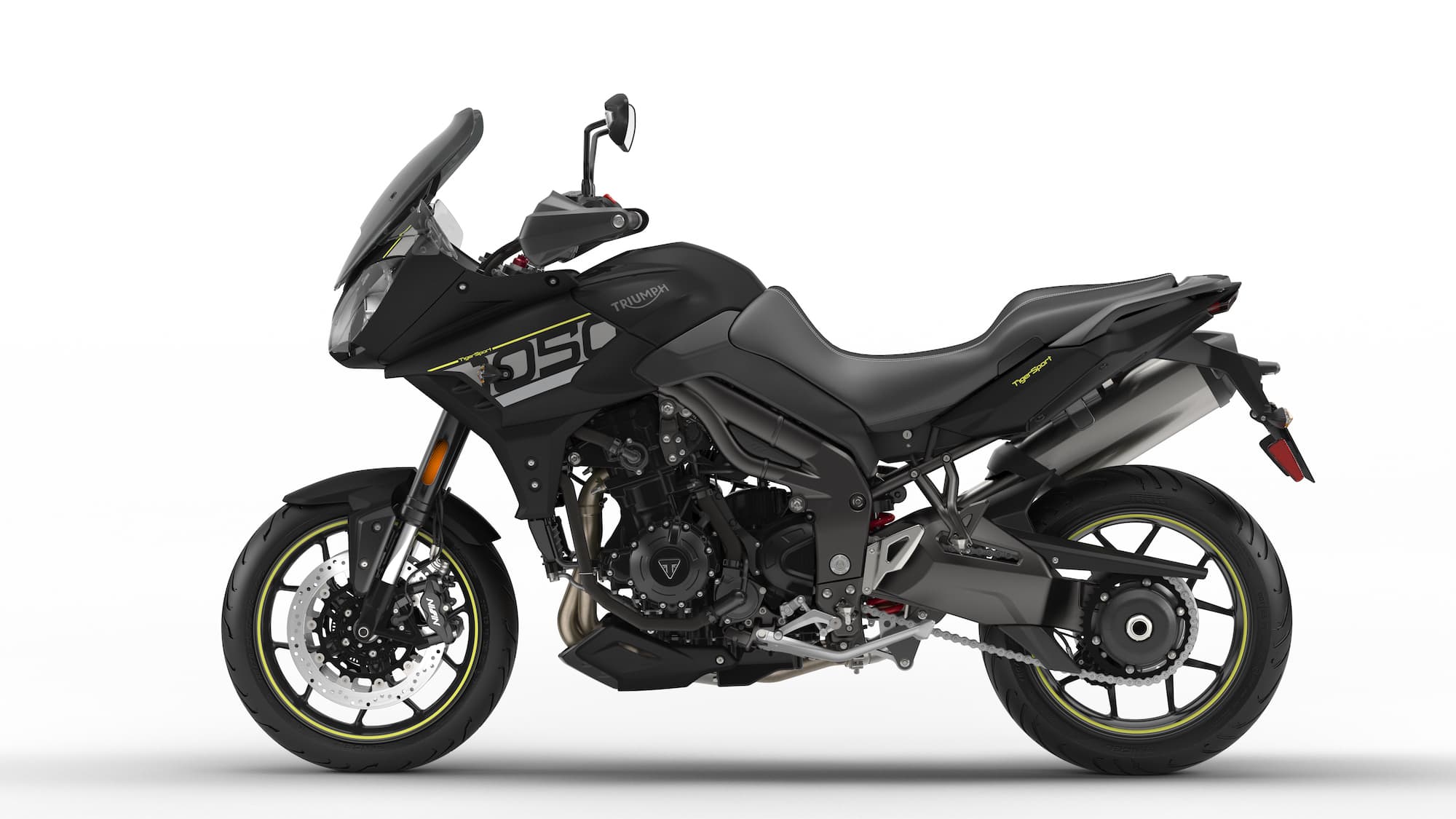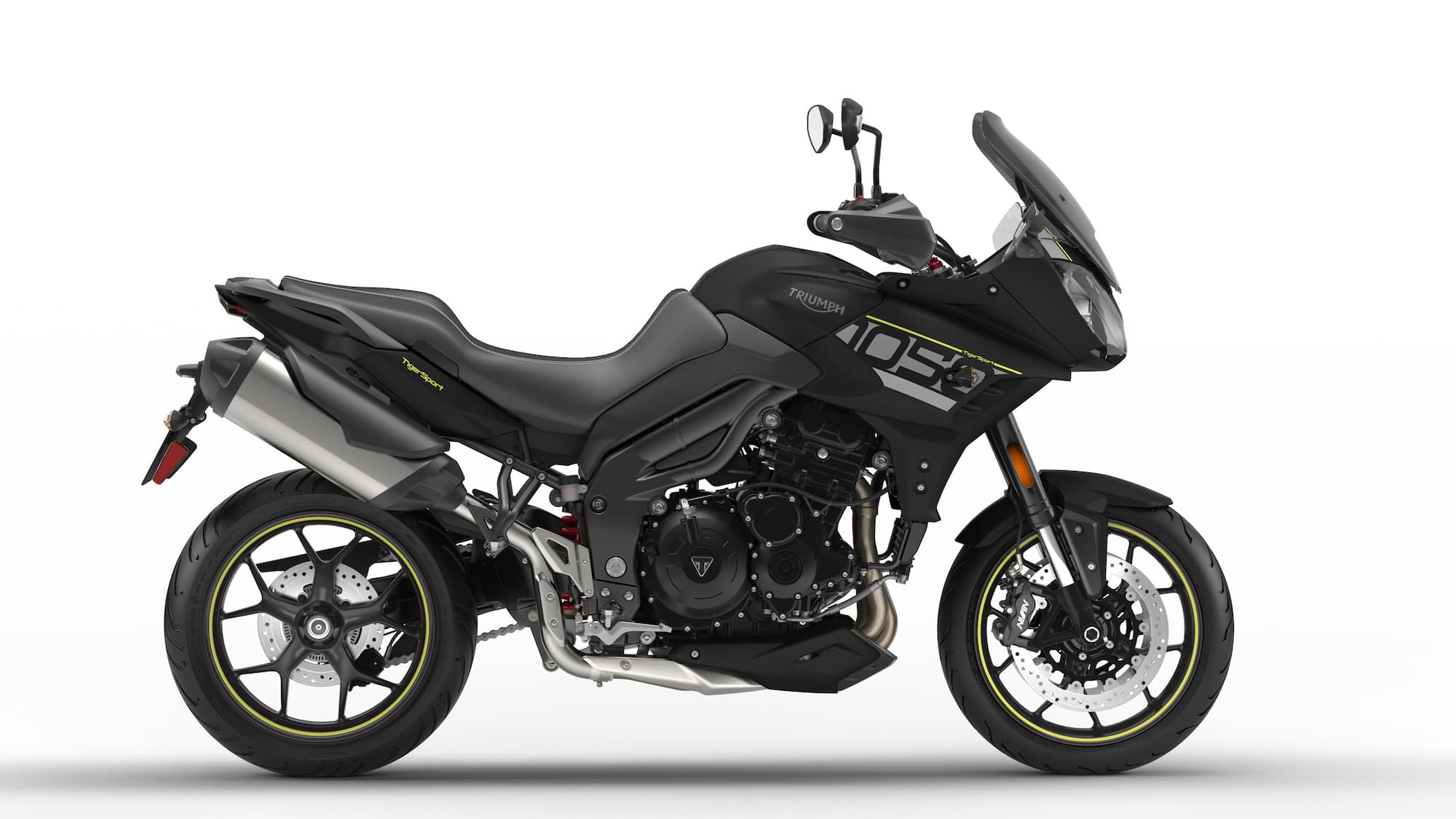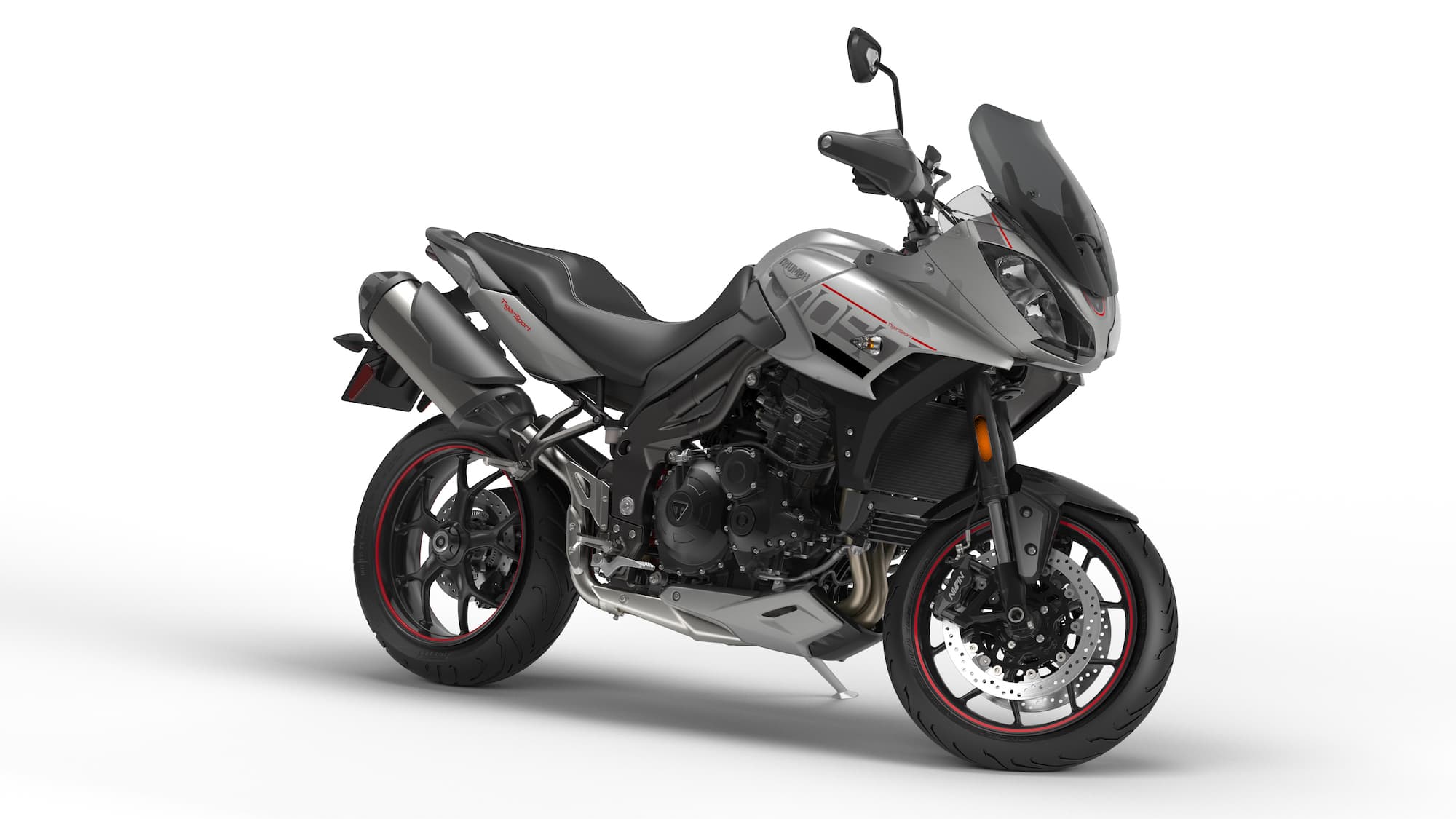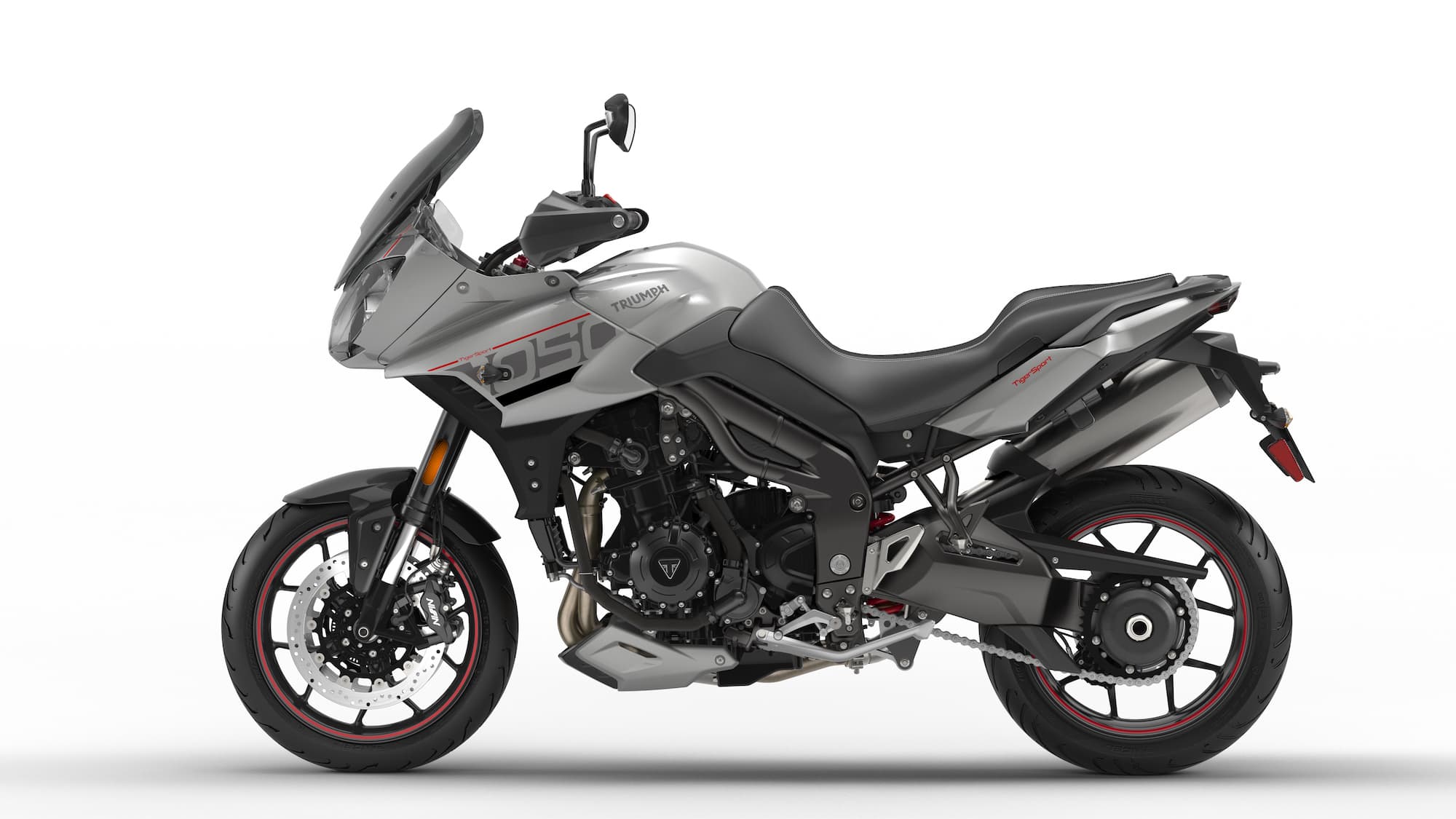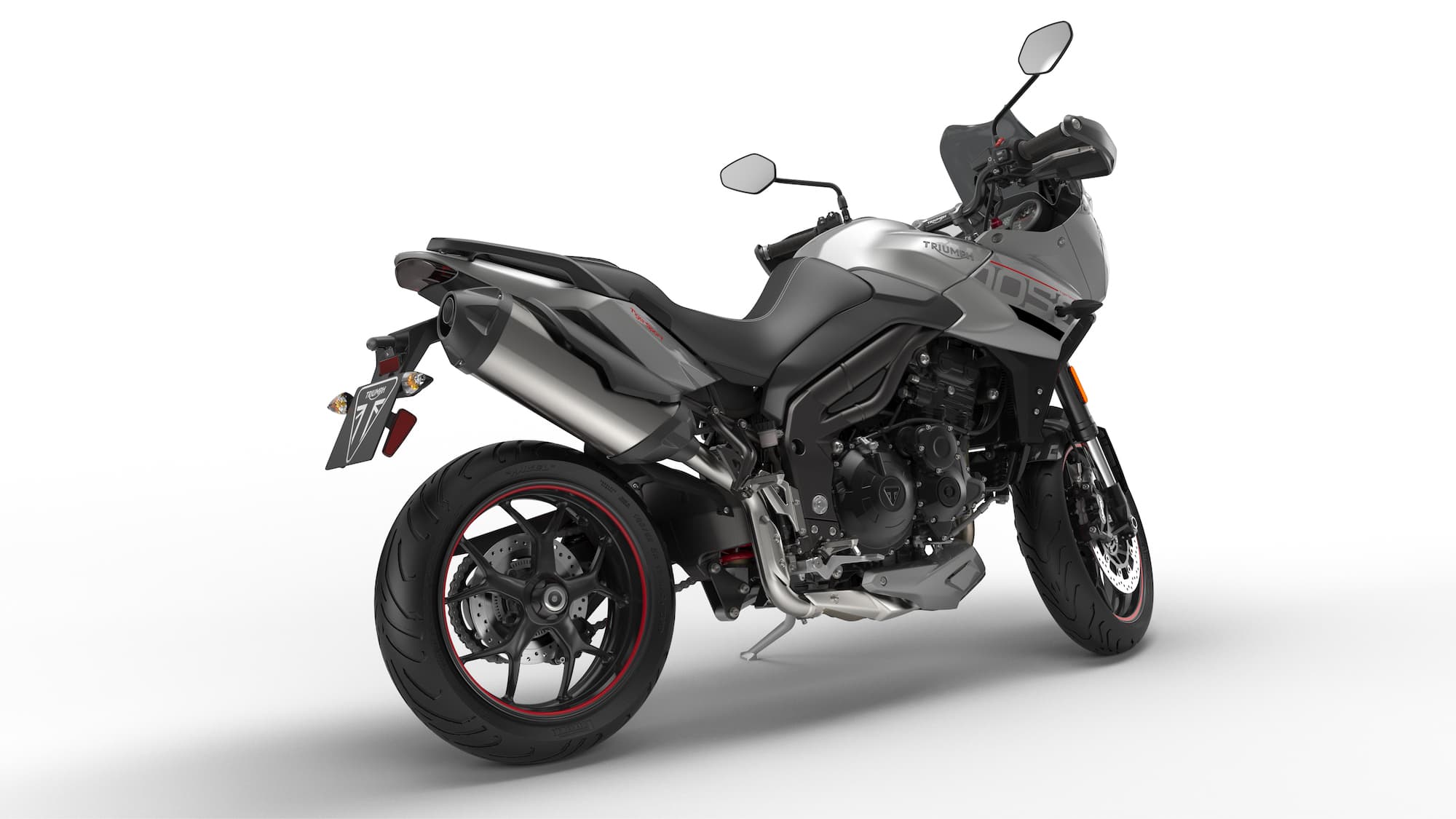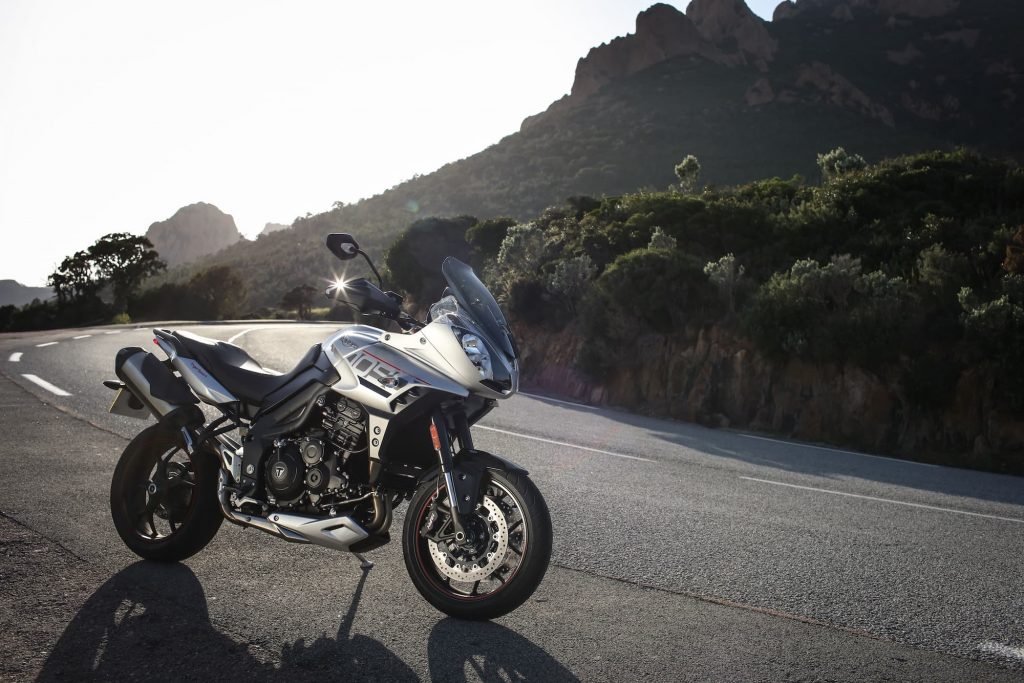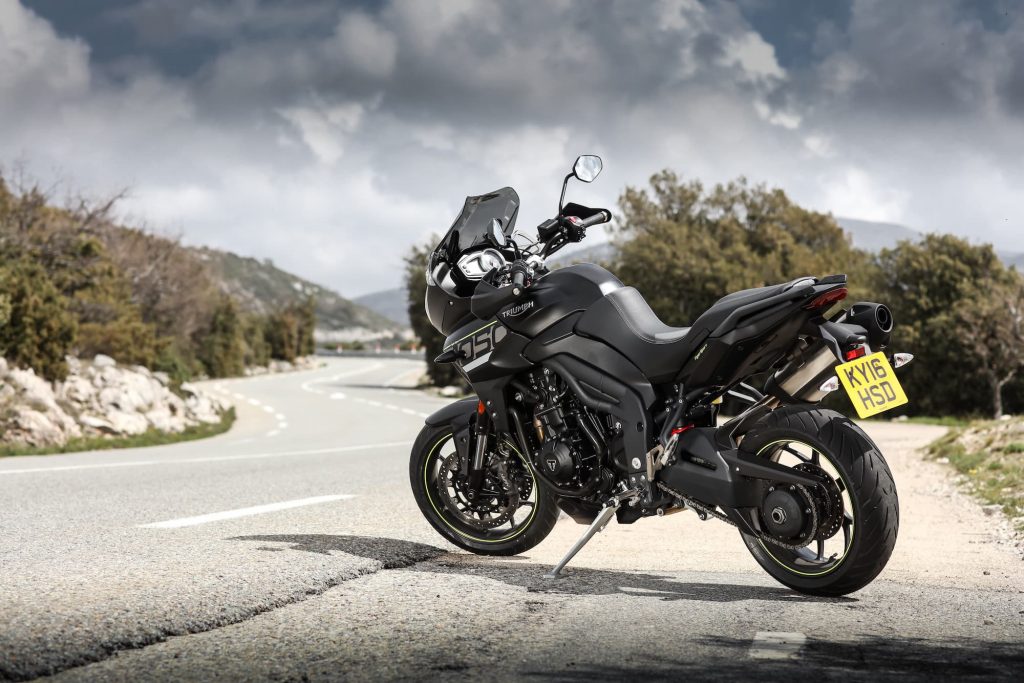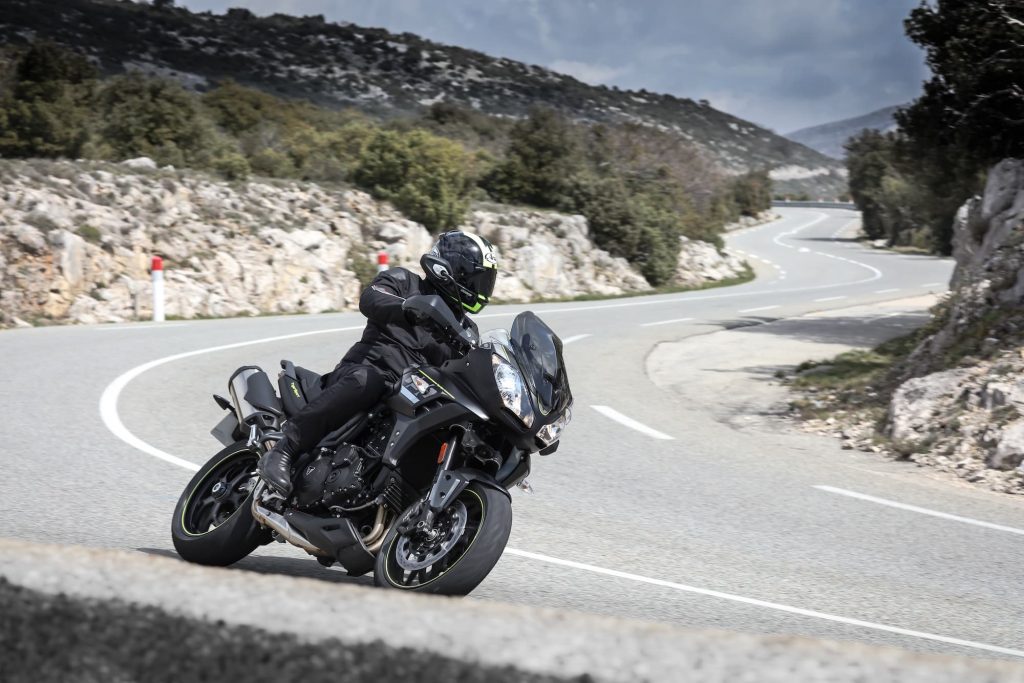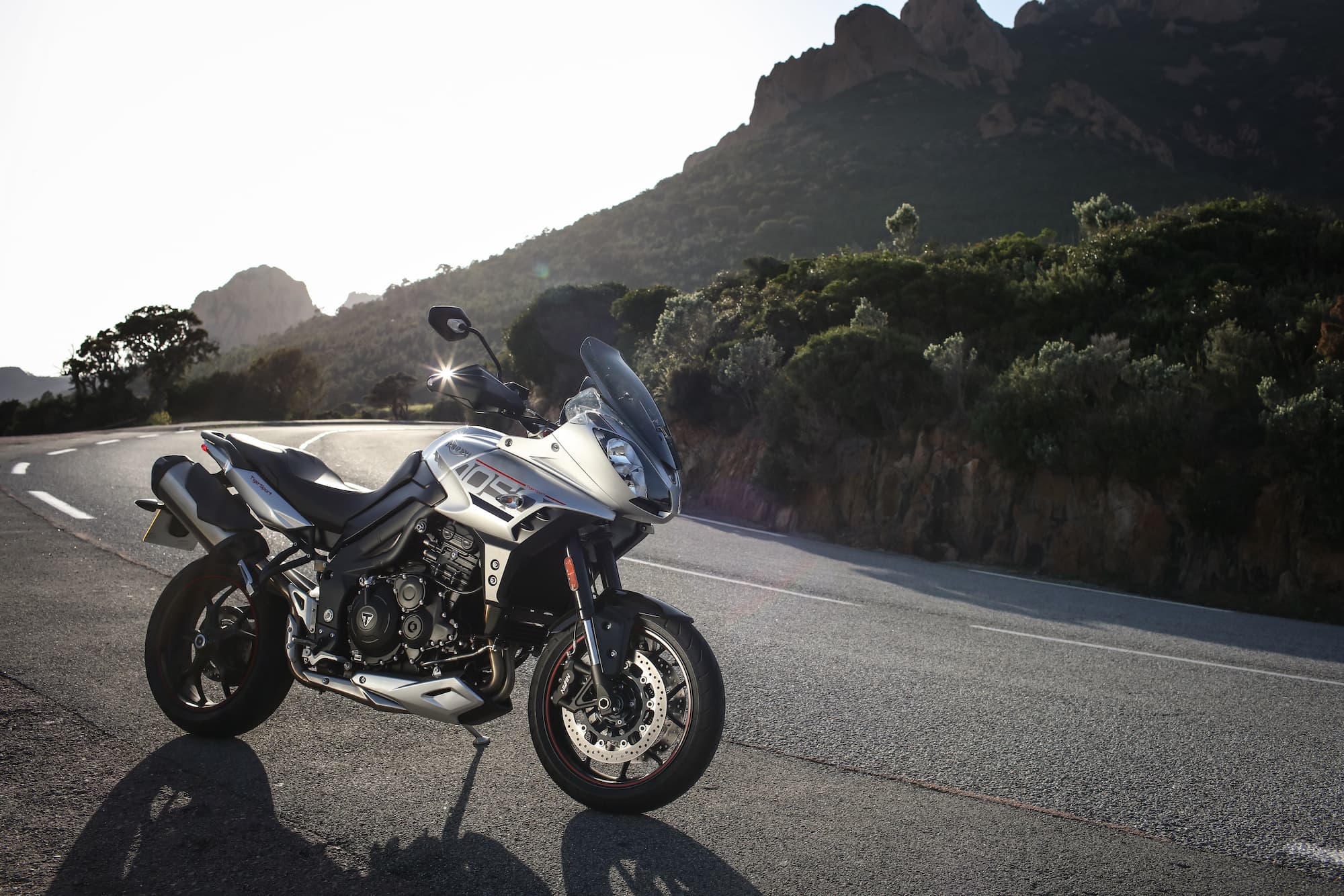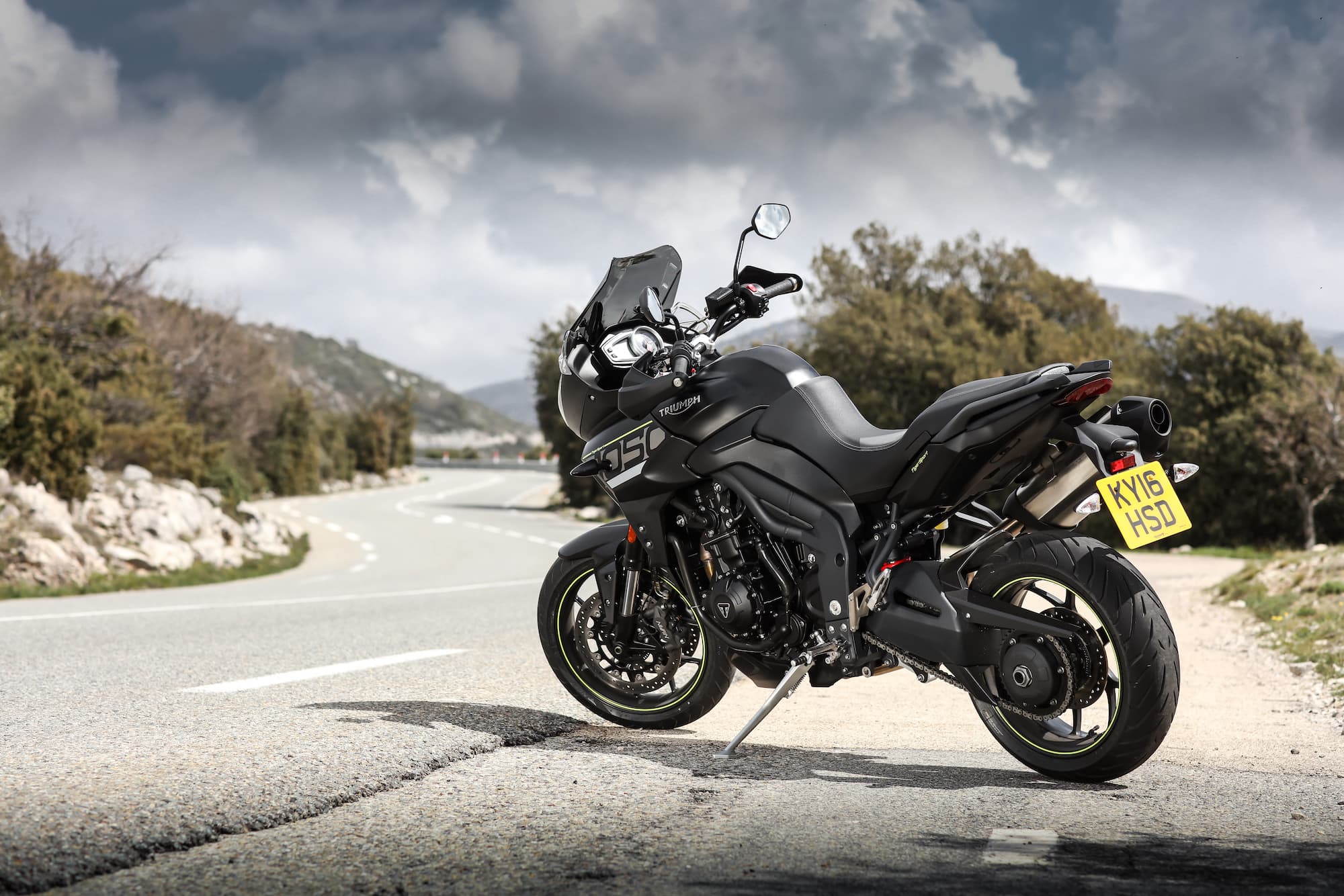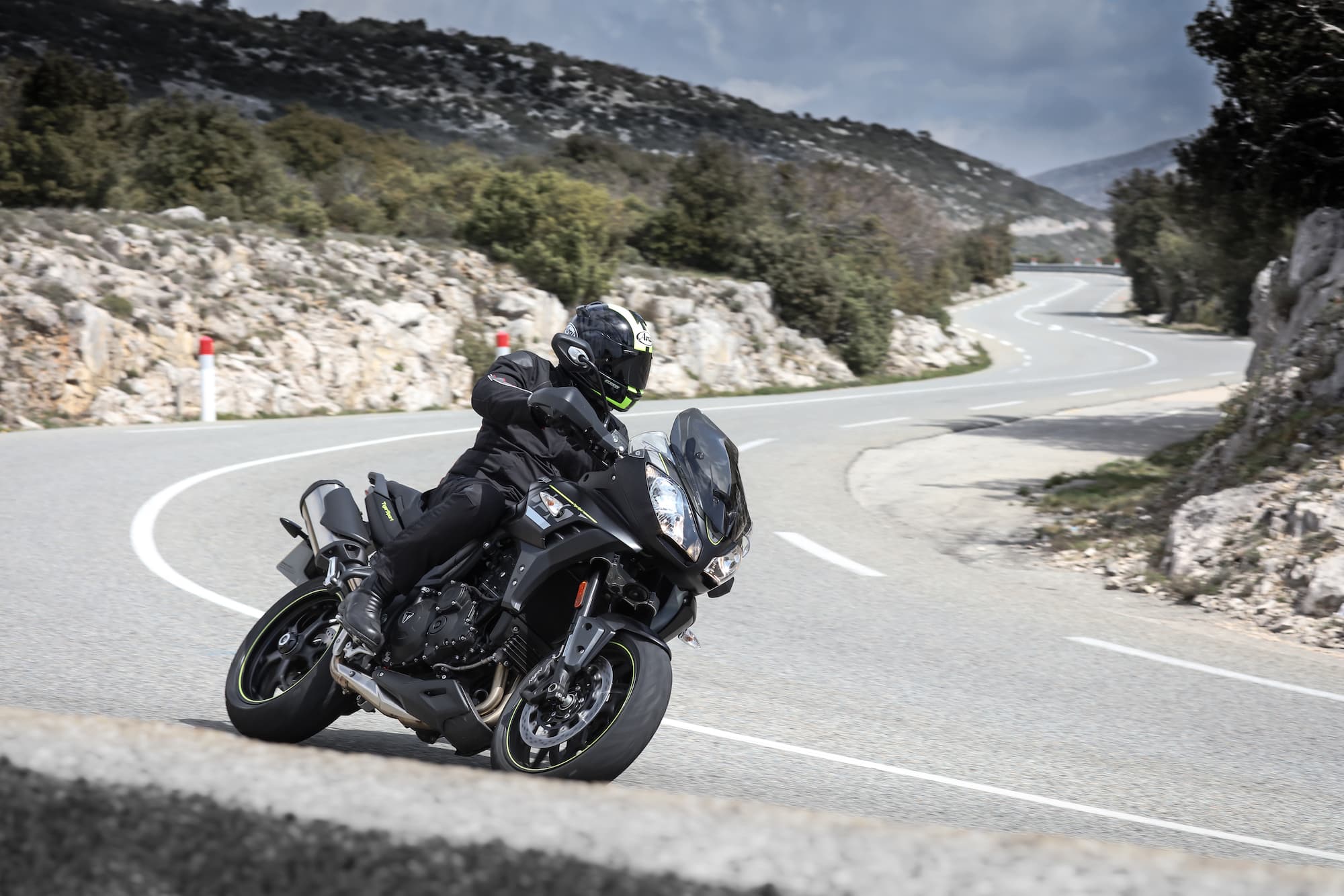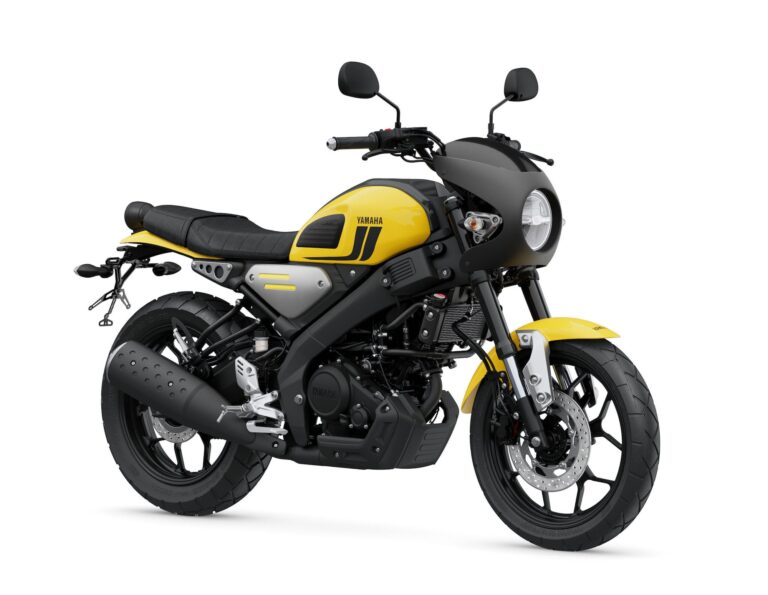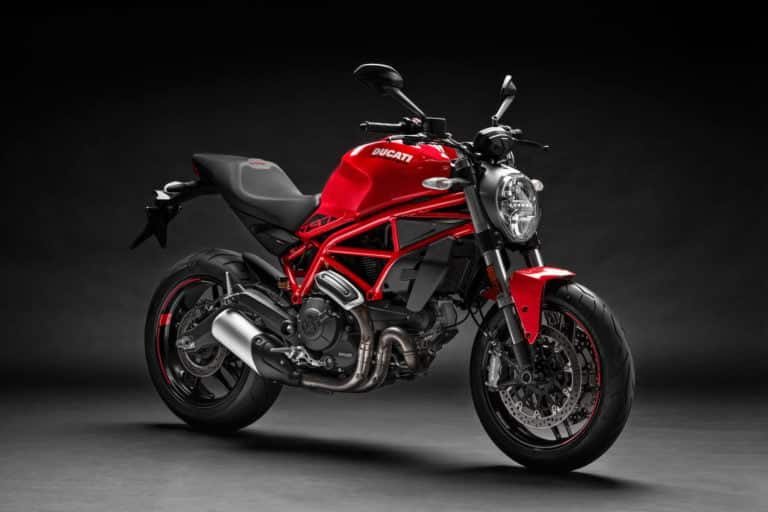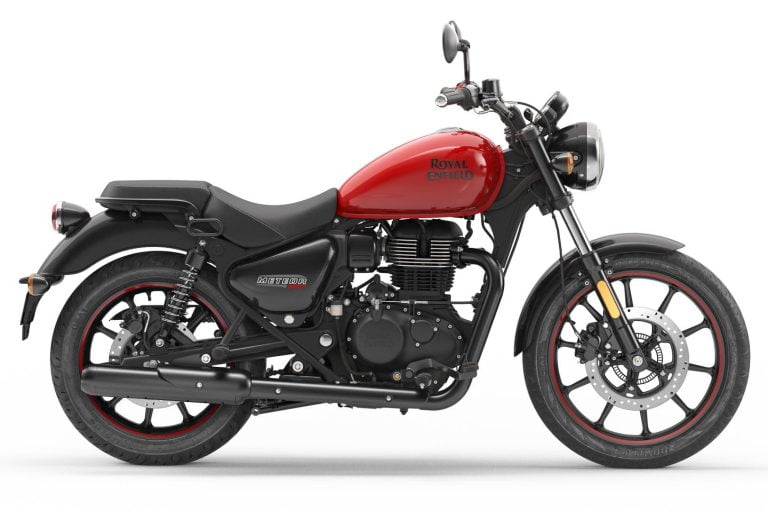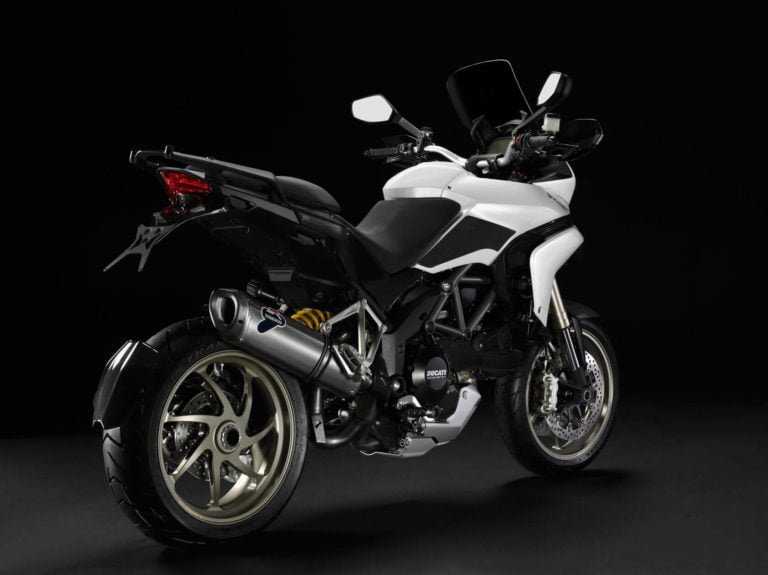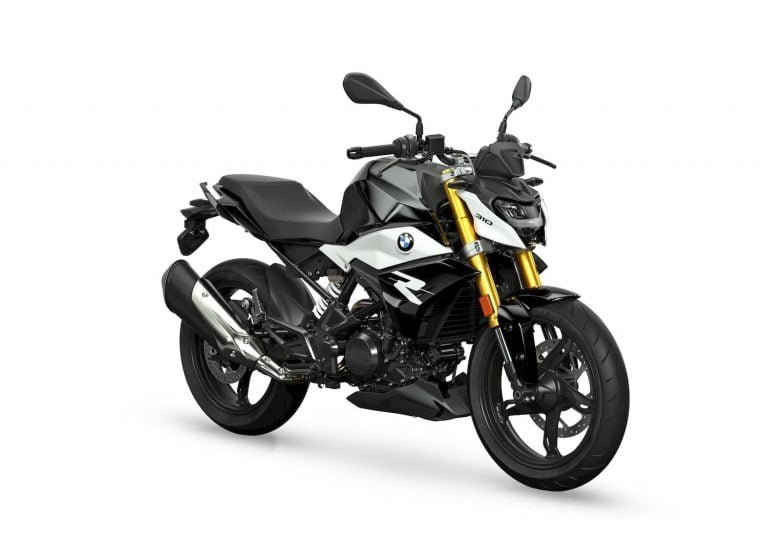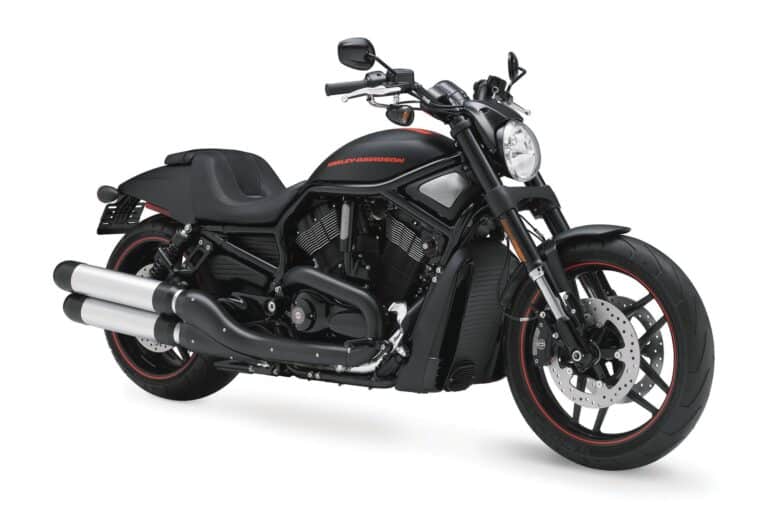Triumph Tiger Sport 1050 (2013-2021) Maintenance Schedule
This is the maintenance schedule with associated service intervals for the Triumph Tiger Sport 1050 motorcycles made from 2013 onward, including the 2016 revision.
The Tiger Sport is a sportier of the Tiger series, with road-going tires and less set-up for going off-road. It’s an adventure tourer, not claiming to have off-road ambitions (though it can defend itself on packed dirt roads and fire roads). It takes over from the earlier 2007-2012 Triumph Tiger 1050, which had the same engine but which made slightly less power. Also, it was down on features and style. (But it’s much cheaper!)
The Triumph Tiger Sport has a pretty big 1050cc triple engine that has tons of torque, power, and howl. Triumph updated the Tiger Sport 1050 in 2016 with the latest engine from the Speed Triple, plus new exhaust, airbox, and mapping, and more ride aids. That said, the actual maintenance schedule didn’t change much.
The maintenance schedule for the Triumph Tiger Sport is very similar to those for other motorcycles with similar engines in the Triumph Tiger Sport, like the Speed Triple.
This site has links for things like oil and spark plugs from which we earn a commission (which unfortunately nobody can save, not even us). If you appreciate this work, then please use those links. Thanks!
Triumph Tiger Sport 1050 Service Intervals
Overall, the Triumph Tiger Sport has 6000 mile / 10000 km or annual service intervals, and in each of these periods or every year, change the engine oil and filter, and look over the motorcycle for any leaks, items in need of lubrication, or things that are worn out.
The major valve clearance inspection is every 12,000 miles or 20,000 km. At this point, you should also change the air filter and the spark plugs.
The valve adjustment does require you to remove the camshafts to make changes. However, many owners say that the valve clearances rarely need adjusting (see here for example).
Make sure to regularly refresh the brake fluid, engine coolant, and fork oil (Triumph likes you to replace that every now and then).
The 2013-2021 Tiger Sport 1050 has a single-side swingarm and a chain drive, which means that tensioning the chain is easier than on most motorcycles — you don’t have to worry about alignment, and don’t need a breaker bar and huge torque wrench on the rear axle. Whew!
What you need to maintain the Triumph Tiger Sport 1050
Consult the below maintenance schedule to see what you might need, e.g. oil, spark plugs, etc. You can find part numbers that we’ve researched to help out.
| Part | Triumph Tiger Sport 1050 spec |
|---|---|
| Oil | Triumph recommends 10W/40 or 10W/50 semi or fully synthetic motorcycle engine oil that meets specification API SH (or higher) and JASO MA, such as Castrol Power 1 Racing 4T 10W-40 (fully synthetic) engine oil, sold as Castrol Power RS Racing 4T 10W-40 (fully synthetic) in some countries. Tighten the oil drain plug to 25 Nm. |
| Oil filter | Replace the oil filter every time you change the oil. Use Triumph part number T1218001. You have to use a suitable oil filter wrench or Triumph tool T3880313 to remove the Triumph oil filter. You can also use an HF204RC, which you tighten with a normal wrench. Tighten the oil filter to 10 Nm. |
| Brake fluid | Triumph motorcycles need DOT 4 brake fluid (The Tiger Sport a clutch cable, so you don’t need fluid for the clutch), like Castrol DOT 4. |
| Coolant | Use Triumph HD4X Hybrid OAT coolant or an HD4X equivalent, like PEAK OET European Vehicles Blue. See our analysis of equivalents to Triumph HD4X. |
| Front brake pads | Standard brake pads code is T2020329. The equivalent part number for EBC brakes is FA347HH. |
| Rear brake pads | Use original part number T2020555. The equivalent part number for EBC brakes is FA214/2HH. |
| Spark plugs | NGK code CR8EK. Note they’re sold individually. Make sure they’re gapped to 0.7mm (+/- 0.05-0.1mm) with an appropriate spark plug gap tool. |
| Air filter | The part number for the air filter is T2204820. You can also use K&N part TB-1005, which are generally more available and cheaper. |
Maintenance Schedule for Triumph Tiger Sport 1050 (2013-2021)
Below is the maintenance schedule for the Triumph Tiger Sport 1050.
It’s broken into three parts:
- Daily checks
- The regular maintenance schedule of major items
- The annual service checklist
Daily Checks
Below is the list of daily checks to do on the Triumph Tiger Sport 1050. Many of these are intuitive — you would do them naturally at the beginning of a ride.
| Triumph Tiger Sport 1050 — Daily Checks |
|---|
| Engine and oil cooler – check for leaks |
| Fuel system – check for leaks, chafing etc. |
| Cooling system – check for leaks |
| Coolant level – check/adjust |
| Clutch cable – check/adjust (Protect all cable life) |
| Wheels – inspect for damage |
| Spoked wheels (if fitted) — check for broken or damaged spokes, and spoke tightness |
| Tyre wear / damage – check |
| Tyre pressures – check/adjust |
| All lights, instruments and electrical systems – check |
| Steering – check for free operation |
| Forks – check for leaks/smooth operation |
| Brake pads – check wear levels |
| Brake master cylinders – check for fluid leaks |
| Brake calipers – check for fluid leaks and seized pistons |
| Brake fluid levels – check |
| Drive chain slack – check/adjust |
| Drive chain rubbing strip – check |
| Fasteners – inspect visually for security |
| Bank angle indicators – inspect visually for wear |
| Side / center stand – check operation |
| Centre stand – check operation (if fitted) |
Regular Maintenance Schedule
Below is the regular maintenance schedule for the Triumph Tiger Sport 1050.
Notes
- Keep following the schedule in the pattern shown.
- Follow the earlier of time-based or distance-based service requirements. For example, change the oil every 6 000 miles or 10 000 km, whichever comes first.
- The break-in service isn’t shown.
| mi x 1000 | 6 | 12 | 18 | 24 | |
|---|---|---|---|---|---|
| km x 1000 | 10 | 20 | 30 | 40 | Every |
| Daily inspection checklist — Perform all items (see above) | ✓ | ✓ | ✓ | ✓ | Day |
| Annual service checklist — Perform all items (See below) | ✓ | ✓ | ✓ | ✓ | Year |
| Engine oil – renew (Castrol Power RS Racing 4T 10W-40) | ✓ | ✓ | ✓ | ✓ | Year |
| Engine oil filter – renew (HF204RC) | ✓ | ✓ | ✓ | ✓ | Year |
| Spark plugs – check | ✓ | ✓ | |||
| Spark plugs – renew (CR8EK) | ✓ | ✓ | |||
| Valve clearances – check/adjust | ✓ | ✓ | |||
| Throttle bodies – balance | ✓ | ✓ | ✓ | ✓ | |
| Throttle body plate (butterfly) – check / clean | ✓ | ✓ | ✓ | ✓ | |
| Air cleaner – renew (TB-1005) | ✓ | ✓ | |||
| Secondary air injection system (if fitted) – check/clean | ✓ | ✓ | |||
| Fork oil – renew | ✓ | ✓ | |||
| Headstock bearings – lubricate | ✓ | ✓ | |||
| Rear suspension linkage – check/lubricate | ✓ | ||||
| Brake fluid – renew (Castrol DOT 4) | 2 years | ||||
| Coolant – renew (PEAK OET European Vehicles Blue) | 3 years | ||||
| Fuel and evaporative loss hoses (if fitted) – renew | 4 years |
Triumph Tiger Sport 1050 — Annual Service Checklist
Below is the list of annual service check items to do on your Triumph Tiger Sport 1050.
Do these according to the schedule above.
Items marked [T] need specialist tools.
| Triumph Tiger Sport 1050 Annual Service Checklist |
|---|
| [T] Autoscan – carry out a full Autoscan using the Triumph Diagnostic Tool (print a customer copy) |
| [T] Brake ABS system and immobiliser ECMs – check for stored DTCs |
| Exhaust clamp bolts — Check / adjust |
| Wheel bearings – check for wear/smooth operation |
| Headstock bearings – check/adjust |
| Drive chain rubbing strip – check |
| Luggage rack sliding carriage (if fitted) – check for correct operation |
Chain Maintenance on the Triumph Tiger Sport 1050
Triumph recommends you lubricate your chain and check the wear periodically according to the following schedule, or more often if you ride your Tiger in the rain or mud.
| Item | Every |
|---|---|
| Drive chain – lubricate | 200 miles (300 km) |
| Drive chain – check wear | 500 miles (800 km) |
You also need to regularly check the chain slack.
How to check chain slack on the Triumph Tiger 1050

Every brand of motorcycle measures chain slack differently. For Triumph, slack is the free vertical movement of the center part of the bottom chain segment.
- You need a ruler (or tape measure) and nitrile gloves or a rag (to avoid getting grease on your hands)
- Put the motorcycle in neutral, on a level service, and elevate the rear wheel with a stand or center stand if you have one fitted.
- Rotate the wheel and find the tightest part of the chain, in the middle.
- Use a finger to lightly push the chain up and down. Measure the deflection, which is the chain slack.
Target chain slack for the Tiger 1050: 29-40 mm
How to adjust chain slack
The Triumph Tiger 1050 from 2013-2021 has a single-sided swing arm. Thus, you need a C-spanner to adjust chain tension, which should be in the factory tool kit.
This is how to adjust chain slack.
- Loosen the adjuster clamp bolt
- Use the C-spanner to tighten or loosen the chain. anti-clockwise is to tighten, and clockwise is to loosen.
- Tighten the clamp bolt to 55 Nm / 41 lb-ft.
At the same time, measure chain wear by checking how long it is, inspecting several parts of the chain. Hang a 10-20 kg weight off the bottom of the chain, and measure across 20 links. The length should be 319 mm or less. If it’s more, then it’s time to replace the chain (and sprockets).
Tyre sizes and pressures for the Triumph Tiger Sport 1050
The Triumph Tiger Sport 1050 is an upright sport touring/adventure bike. It is most appropriately shod with sport touring tyres, like Bridgestone Battlax, Michelin Pilot Road GT, or Pirelli Angel GT tyres.
| Wheel | Tyre (Tire) size | Tyre (Tire) pressure (cold) |
|---|---|---|
| Front | 120/70-17 (58W) | 2.34 bar / 34 psi |
| Rear | 180/55-17 (73W) | 2.9 bar / 42 psi |
Use the above recommended tire pressures as a guide. Adjust them according to your needs.
About the Triumph Tiger Sport 1050
The 2013-onward Triumph Tiger Sport was, when released, the latest in a line of Triumph Tiger sport-touring motorcycles.
The Tiger has always been Triumph’s jack-of-all-trades — able to go the distance, carve it up in the hills/canyons, and even do OK on dirt without too much trouble. A three-cylinder engine has meant that it is characterful and smooth and able to do a lot.
The 2013 Triumph Tiger Sport 1050 replaces the old Tiger 1050, produced from 2007 to 2012. The engine is a 1050cc inline three-cylinder engine that makes north of 92kW at 9400 rpm of power.
Triumph updated the Tiger 1050 Sport’s engine in 2016 for emissions compliance, bumping peak power while they were at it, but also moving the torque upward. Here are how the specs changed:
| Spec | 2013-2015 Tiger Sport | 2016-2021 Tiger Sport |
|---|---|---|
| Compression ratio | 12.0:1 | 12.25:1 |
| Peak power | 92 kW (123 bhp) @ 9400 rpm | 93 kW (126 bhp) @ 9475 rpm |
| Peak torque | 104 Nm (77 ft-lb) @ 4300 rpm | 106 Nm (78 ft-lb) @ 7000 rpm |
In both cases, peak power is made just shy of the 9500 rpm electronic rev limiter. So these motorcycles both really earned the “sport” in their names.
The most significant change you might notice is that claimed peak torque is different between the two generations of Tiger. But you’d be mistaken to think that the torque curve is very different. Per Motorcycle.com’s dyno, they’re almost identical, with the newer 2016 model showing a hair more rear wheel torque across the whole rev range.
The Tiger’s engine is, like all Triumph triples, a gem. It’s a special thing to have a three-cylinder engine in a sport tourer. Tourers are meant for long distances, but the engine of the Tiger (and all Triumphs) doesn’t just want to lope around — it’s happy to be pushed. Occasionally, you’ll want to hear it sing, just for the heck of it.
The ride gear of the Triumph Tiger sport remained the same on both generations, as did most of the other specs (e.g. the weight).
Front suspension is via 43mm Showa upside-down forks that are fully adjustable for preload, rebound damping, and compression damping.
Rear suspension is via a Showa monoshock with adjustable preload and rebound damping (not quite fully adjustable).
The brakes are standard “entry-level sportbike” fare, Nissin 4-piston calipers on 320mm floating discs.
The 2016-2021 Triumph Tiger Sport 1050 is quite a special bike, updated with ride electronics for the modern age. In fact, it’s a rare adventure sport tourer with cruise control and that’s often found with luggage. This really helps its split personality — dress it up with luggage for distance, or dress it down with nothing on it for an active day in the mountains.
Manual for the Triumph Tiger Sport 1050
The above maintenance schedule comes directly from the user’s manual for the Triumph Tiger Sport, but modified for ease of use on the web.
We checked across multiple versions of the manual from 2013 to 2020 and found no changes to the maintenance requirements.
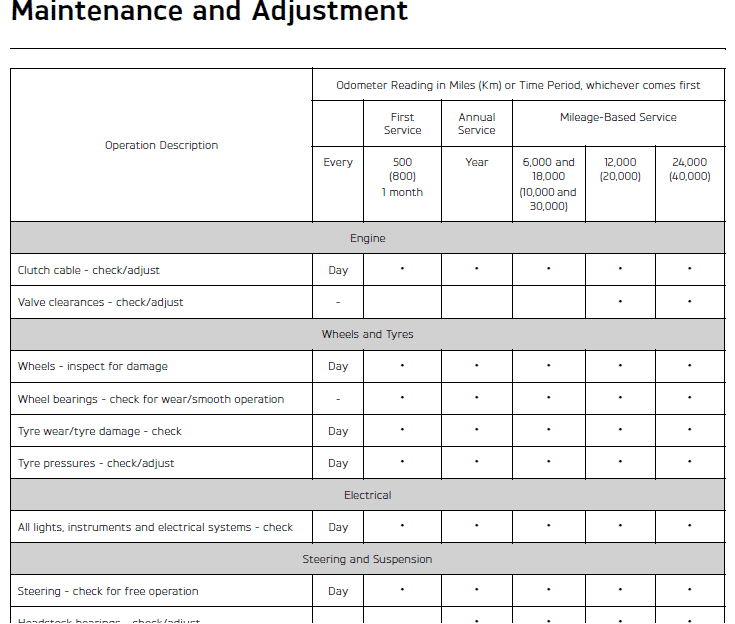
The original manual is available on the Triumph web site.
The maintenance and servicing section of the Tiger 1050 forum has a ton of resources, too.
